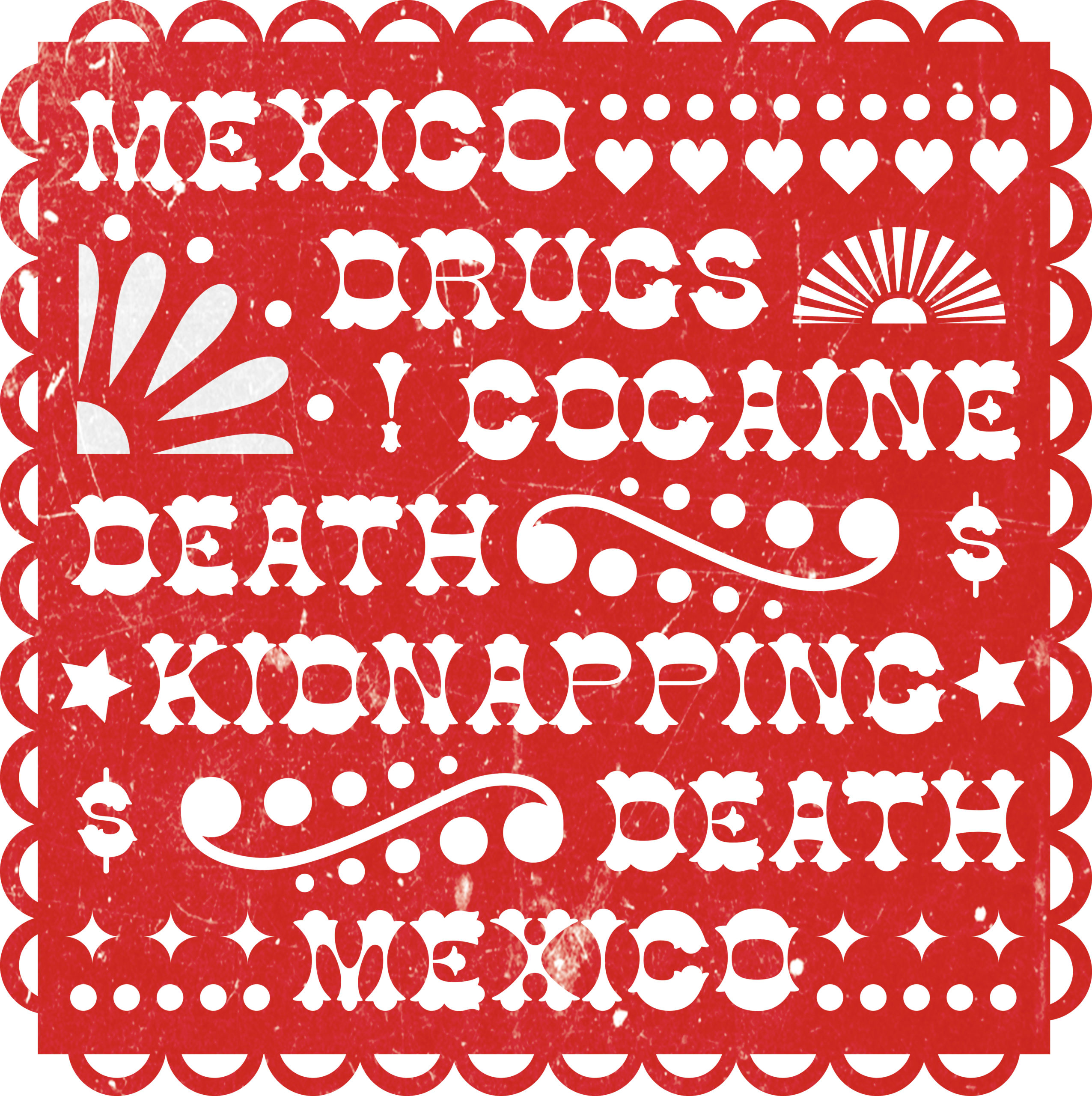Words: Zola Rowlatt (She/Her)
Art: Bea Woolner (She/Her)
Now that you are listening, let me peel back this stigma to reveal the light in a country that is too often eclipsed.
Mexico is riddled with turmoil, and the most prevalent issue facing the country is the drug war. The media offers a breadth of historical accounts of the Mexican cartels and the insecurity they wreak over the country. Perhaps the most familiar being Narcos: Mexico. However, unlike the DEA agents, or Kingpins like Felix Guallardo, the children of Mexico are involuntarily involved.
Since August, I’ve been teaching English at the Autonomous University in Zacatecas, a small Mexican city. In my first 20 days, I came across a student who had been kidnapped by narcotraffickers. As time passed, and my relationship with the students deepened, more horror stories surfaced into conversation. Their experiences are not whispered through corridors like gossip. The giggling, light hearted demeanour of the students is dampened when they open up about the dark side of their country. An ominous gravity settles over the classroom.
Mexico’s current President, Andrés Manuel López Obrador (AMLO), was elected in 2018. The students’ reaction to him is comedic. ‘He can’t even speak his own language. It’s like hearing a 90 year old try to recite a poem’, joked Sergio. The students mentioned how AMLO hands out scholarships, and when I asked who gets them they laughed; ‘It’s pure luck. Like everything in Mexico.’ Another shrugged, there is ‘no real Right or Left’.
While it may be safe to oppose the government in the shelter of a classroom, activism in the streets could be a death sentence. This discussion brought us on to what one student called ‘The Darkest Time’, formally known as the “Matanza de Tlatelolco”; a large-scale massacre of thousands of students under president Gustavo Díaz Ordaz:
It’s the 2nd of October 1968. Mexico is due to hold the 1968 Olympic Games. Students gather in Mexico City to protest against it, believing that the country is not in a fit state to host and demanding nationwide reform. They hope for a safer, better Mexico. Then the shooting begins.
As recounted by a student, it began with snipers, which ignited panic and led to the surrounding army opening fire. Bullets tore through students as well as civilians. Military personnel had infiltrated the protest and opened fire from within. Tanks were deployed. Bullets rained down from overhead helicopters. Yet Díaz Ordaz, to this day, denies it. He claims he was protecting Mexico from communism.
In response, 8 years ago, 43 students from Ayotzinapa Rural Teachers’ College were travelling by bus to protest in another state. They were forcibly stopped by police, and were never found again. It is rumoured that they knew something that the government was attempting to hide, but families, as well as the public, still remain in the dark.
There you have the unrest. I believe it would have been misleading to skip ahead and focus solely on the good. These issues are rife and without awareness and consequent discussion, the country will drift on aimlessly. Without argument and consequent solution, the country will dissipate further and further into the shadow of their North American neighbour.
It wasn’t always like this. Prehispanic Mexico was extraordinarily well-organised and sanitary. Tenochtitlán, the Aztec capital, flourished in the middle of Lake Texcoco amidst highly sophisticated hydraulic systems. Intricate engineering was carried out to separate fresh from salt water, and a detailed network of rivers facilitated transport around the city by small boats. Today, the water of Mexico is poisonous.
This rich history was obliterated by the Spanish. The early decades of Spanish colonisation proved to be one of ‘history’s greatest holocausts’. In 1522, the leader of the “expedition”, Hernán Cortés, wrote a letter to King Charles V in which he announced his orders of ‘the looting and burning of the palaces… precisely because [Cortés] understood their significance to the Mexica’.
In the thirty years following independence from the Spanish in 1821, Mexico was passed through the hands of 50 different governments and ever since, the country has been in a permanent state of tempestuous political discord. Yet despite the elimination of their ancient culture and the anarchy that has poisoned the country for centuries, the inexhaustible charm of the country remains.
Mexico is a country founded on contradiction. The inhumane, insatiable, greed of the cartels stands at a polar opposite to the outstanding passion and generosity of the people of Mexico. Most profoundly displayed through the respect paid to lost family members during the Day of the Dead, benevolence and gratitude are rooted far deeper than any evil. The image of the skeletal figures that marks the celebration reminds Mexicans that death equalises even the most extreme social inequality.
On top of this, everyone here is always up for a party. Street parties in Mexico are widespread. Here in Zacatecas they are known as Callejoneadas: parades (and shots of mezcal) flow through the emblematic streets of the city centre. Anyone can join in the cheer. The kaleidoscopic society of Mexico is united by an unbreakable belief in respect, food, and celebration.
Between the cracks of corruption and a twisted history, Mexico remains a country of ubiquitous cordiality.
The students that I have been lucky enough to get to know whilst teaching here have given me an invaluable insight into Mexico. The stories they share with me are unimaginable, yet they glisten with curiosity and an appetite for knowledge. Mexican posterity has recognised the faults in the powers-that-be, and, as seen across the globe, the young population find themselves with the responsibility of repairing the fractured home they have inherited.
Why the Indians Are Dying, Alonso de Zorita, 1963
The Totocalli (Motecuzoma’s “Zoo”), Andrés Bustamante Adudelo and Israel Elizalde Méndez, 2022


What a beautiful but heartbreaking snapshot of a world most of us don’t see.